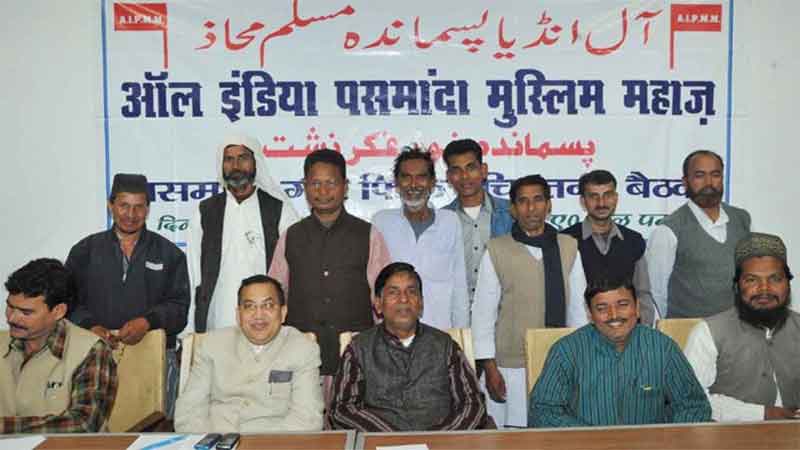
Several months ago, a professor at JNU came across my article on Dr. Ram Manohar Lohia. During our brief conversation near Ganga Dhaba, he expressed clear displeasure with Lohia’s personality and ideas. He also seemed surprised—perhaps even puzzled—by the fact that I, in his view a Left-oriented scholar and activist with some commitment to minority issues, could express admiration for Lohia.
At that time, I clarified my position: I do not see myself as a die-hard follower of Dr. Lohia. In fact, I have disagreed with him on several counts. Nonetheless, I continue to appreciate certain aspects of his thought—particularly his consistent critique of power, his efforts to democratize elite-centric politics across the ideological spectrum, and his sincere concern for the lower castes and marginalized communities who were often ignored by the ruling establishments of his time.
The professor did not agree with me, and we parted after a short exchange.
Today, the same professor shared with me an article by a well-known journalist and author. The article blames the socialist movement for paving the way for the rise of the BJP. In sharing the piece, the professor added a note reaffirming his earlier claim—that Lohia was essentially a right-wing figure with proximity to Hindutva forces.
I have already responded to his comment in a private message, outlining my views on Lohia. But upon reflection, I feel that this is not just a matter of private disagreement; it raises larger questions about how we remember political legacies and assign blame or credit in the context of contemporary challenges like the rise of Hindu nationalism.
Therefore, I believe it is important to share my views publicly. Here is my reply to the professor’s allegation that Dr. Ram Manohar Lohia was a Hindu right-wing leader: “Sir, I have always acknowledged that the socialist movements in India have made serious mistakes. Similarly, I am fully aware that there have been several communal-minded leaders within the socialist camp. However, I cannot accept the sweeping generalization that the socialist leadership as a whole functioned as the B-team of Hindutva forces”.
In my recent article, I have been critical of Dr. Ram Manohar Lohia on several issues. Yet, I continue to admire him for the pivotal role he played in challenging the ruling party of his time, especially when it had strayed far from the ideals it once upheld during the freedom struggle.
While Jawaharlal Nehru is often hero-worshipped by so-called liberals, it is important to recall that during his tenure, there was no official Leader of the Opposition in Parliament, nor was there a genuine attempt to promote leadership from the lower castes. Muslim representation in Parliament during Nehru’s time remained between 3 to 4 percent—roughly one-third of their share in the population. His policies, by and large, benefited a narrow segment of elite Muslims.
In contrast, Lohia—despite his limitations—was committed to democratizing power and encouraging political upsurge from below.
We must also remember that nearly 80 percent of Indian Muslims were eventually included under the ambit of OBC reservations—an inclusion shaped by the social justice agenda inspired by Lohia’s legacy.
It is true that several socialist and Lohiate parties have, at times, allied with Hindutva forces. But the question remains: which political party in India has been entirely free from such compromises? Even the communist parties, often viewed as ideologically secular, entered into tactical alliances with Hindutva-aligned groups, both in the early years after Independence and in later decades.
I believe the widespread rejection of Lohia in contemporary discourse is largely driven by discomfort with his consistent critique of upper-caste dominance in Indian politics. While criticism of Lohia is both legitimate and necessary, the animosity toward him often seems rooted in his bold advocacy for caste-based equity—including his proposal for 60 percent reservation for the lower castes, which also included disadvantaged sections from minority communities.
My central argument is this: Yes, Hindutva politics is indeed a serious threat to our democracy. But it is equally important to examine, with honesty and depth, the structural and political conditions that have enabled its rise. This should not be reduced to a tool for settling political scores.
Subscribe to Our Newsletter
Get the latest CounterCurrents updates delivered straight to your inbox.
While I agree with the author of the article that the professor shared that the socialist movement has made compromises, I do not believe it alone is responsible for the ascendancy of Hindu nationalism. The role of the Congress and the entrenched upper-caste hegemony within both the Congress and the Left must also be subjected to rigorous scrutiny.
Dr. Abhay Kumar holds a PhD in Modern History from the Centre for Historical Studies, Jawaharlal Nehru University. His book on Muslim Personal Law is forthcoming. Email: [email protected]













































